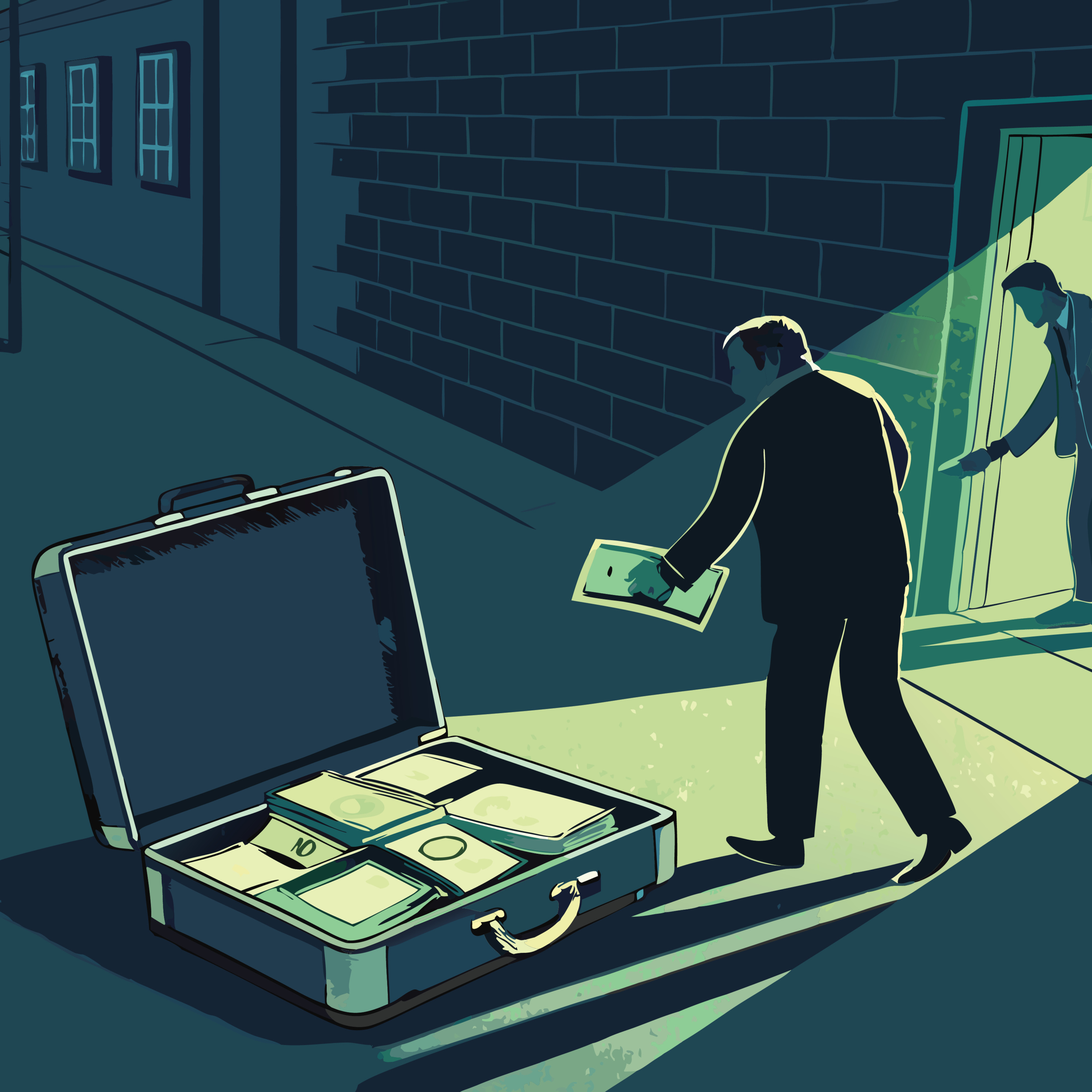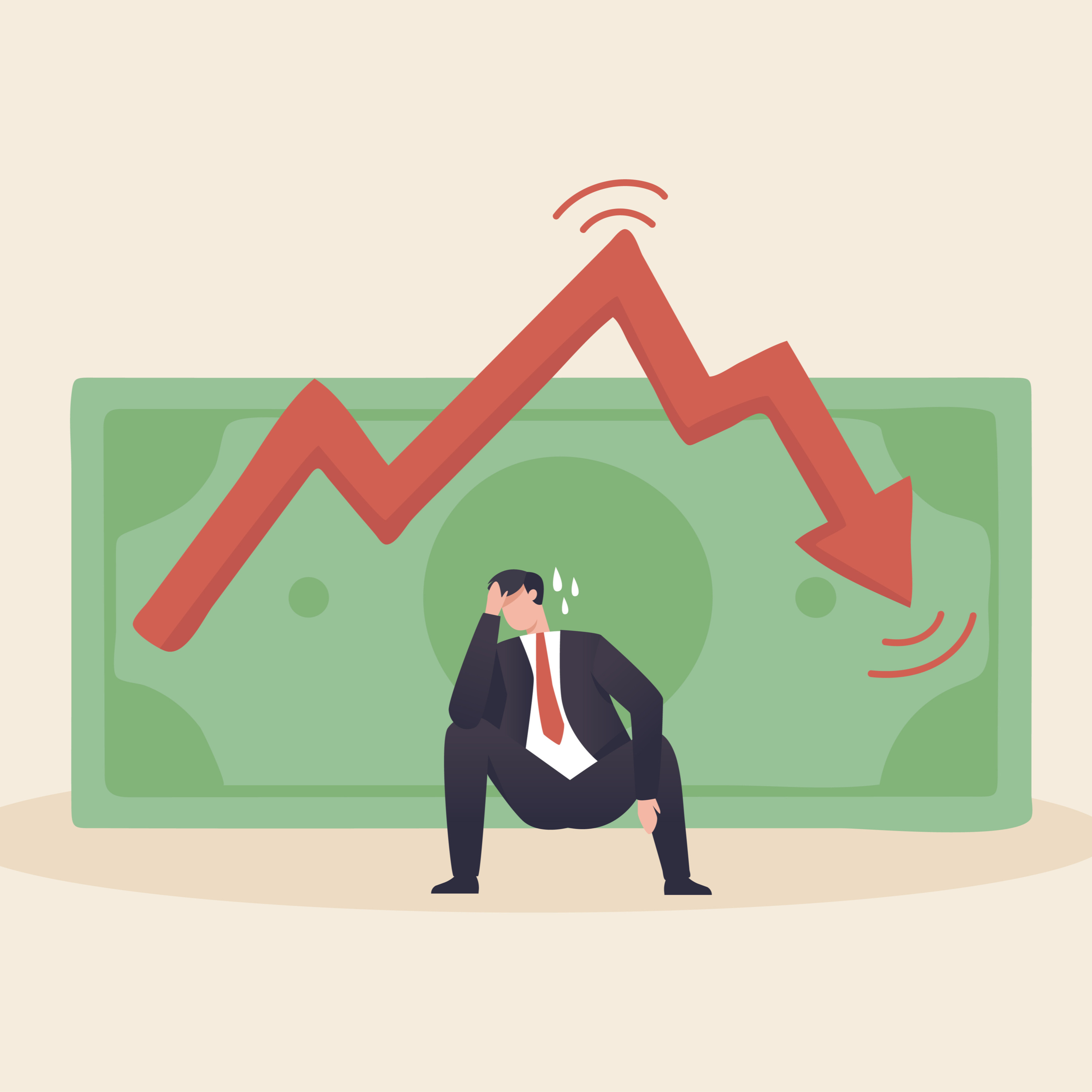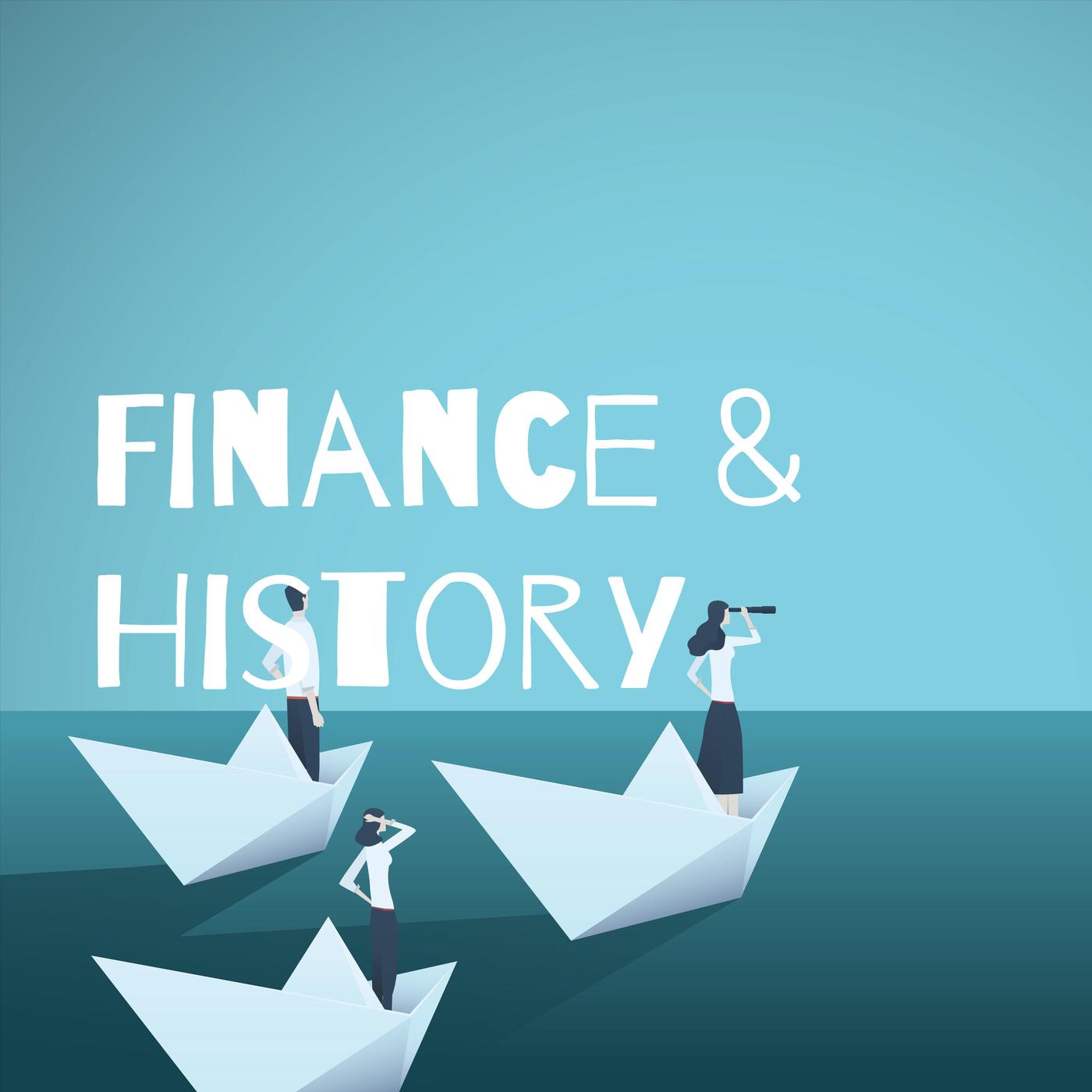Shows

L'OperaL'opera 272 - R. Wagner - La WalkiriaA cura di Paolo PellegriniRichard Wagner, Die WalkureSiegmund, Peter HofmannHunding, Matti SalminenWotan, Donald McintyreSieglinde, Jeannine AltmeyerBrünnhilde, Gwyneth JonesFricka, Hanna SchwarzGerhilde, Carmen ReppelOrtlinde, Karen MiddletonWaltraute, Gabriele SchnautSchwertleite, Gwendolyn KillebrewHelmwige, Katie ClarkeSiegrune, Marga SchimlGrimgerde, Ilse GramatzkiRossweisse, Elisabeth Glauser Orchestra del Festival di BayreuthPierre Boulez, direttore
2026-01-113h 40
InSZide MedienSpecial: InSZide Prüfungsphase (Tipps)Merry Crisis? Im Januar ist Prüfungsphase im Wintersemester an der Fakultät und in dieser kleinen Spezialfolge sucht Anna Brucks Antworten auf die Frage, wie Klausuren, Hausarbeiten und mündliche Prüfungen erfolgreich bewältigt werden können.Lehrende aus dem Medienbereich verraten ihre persönlichen Tipps für die Prüfungsphase und wie sie selbst in ihrem Studium mit dieser Herausforderung umgegangen sind.Vielen Dank für die Zusendung der Tipps an: Carmen Woisczyk, Daria Brakmann, Jens Martens, Jennifer O'Brien, Daniela Hofmann und Svenja Marquardt.Alle Infos...
2025-12-2416 min
Finance & HistoryHitler’s DebtHow post-war finance remade Europe.In this episode, host Carmen Hofmann speaks with historian Tobias Straumann about his book Hitler’s Debt and the financial decisions that shaped Europe’s post-war recovery.We explore how settling Hitler’s unresolved debts, the 1953 London Debt Agreement, and bold U.S. policy choices helped turn a devastated continent into the “economic miracle” of the 1950s. Straumann explains why debt relief strengthened democracy, how leaders like Adenauer, Acheson, Schuman, Ben-Gurion and Sharett navigated moral and political dilemmas, and what the German case can teach us about today’s global debt cr...
2025-11-1841 min
Finance & HistoryHistories of Finance and PoliticsHugo Bänziger (Chairman of eabh) and Manfred Pohl (founder of eabh) come together for a rare conversation between two of the most experienced banking historians. They explore key milestones in Germany’s financial history after World War II, highlighting the crucial role of rebuilding the financial system as the foundation for national recovery.Their discussion also uncovers historical patterns—from the strategic eastward moves of emperors to Western Europe’s enduring quest for oil. Both experts emphasize a central point: just as nations must confront their histories—whether bright or dark—so too must companies face their past wit...
2025-09-0130 min
Finance & HistoryCapital in BankingCapital Matters: Banking, Risk, and HistoryIn this episode, Carmen Hofmann (eabh) speaks with Simon Amrein (Lucerne) about the role of capital in banking—past and present. They explore how banks have historically been funded, whether excessive leverage has made them fragile, and whether more capital really makes banks safer. The conversation touches on the functions and forms of capital, the trade-offs between safety and efficiency, and how capital helps prevent bank runs. They also reflect on how the post-WWII effort to rebuild economies reshaped global attitudes toward financial risk and regulation.
2025-07-0738 min
Finance & HistorySingle CurrencyIn this episode of 'Finance and History', Hugo Bänziger talks to Olli Rehn, Governor of the Bank of Finland, at the eabh annual conference. Together, they unpack the euro’s historic roots, from the Latin Monetary Union to today’s Economic and Monetary Union. Rehn shares insider insights on the euro’s creation, its crises, and the lessons learned along the way. The conversation also tackles central bank evolution, fiscal discipline, and Europe’s unfinished integration journey. An engaging deep dive into the intersection of financial history and contemporary policy challenges.
2025-06-2535 min
Finance & HistoryCapitalism, Populism, DemocracyIn this episode, we dive into how rising populism is reshaping capitalism and democracy. With Stefan Hofrichter (AllianzGI) Hans-Jörg Naumer (Allianz GI)—authors of Capitalism, Populism and Democracy— and Carmen Hofmann (eabh) we unpack the economic roots of today’s populist surge, its historical parallels, and what it means for markets, growth, and inequality.They connect past crises to current trends, revealing how financial history helps unpack the impact of past populist regimes on economic growth and investor behavior—lessons that matter now more than ever.
2025-05-2139 min
Finance & HistoryCanvas and CapitalIs art a safe investment in times of war?In this episode, Kim Oosterlinck (General Director of the Royal Museums of Fine Arts of Belgium) and Carmen Hofmann (eabh) dive into the little-known yet fascinating world of the German art market during World War II. This new research reveals that Germany itself as much as the occupied territories experienced a surprising wartime art boom. Using fresh data, the study uncovers how artworks became a discreet yet powerful investment amid economic uncertainty and Nazi regulation. From black market dynamics to the fate of so-called “degenerate art,” we un...
2025-04-1623 min
Finance & HistoryBanco do BrasilIn this episode, Sebastian Alvarez (Universidad Adolfo Ibañez) & Carmen Hofmann (eabh) explore the powerful role of the Brazilian state in shaping the country’s financial system—focusing on the fascinating case of Banco do Brasil.Far beyond its domestic credit functions, BB emerged as a key player on the international stage during Brazil’s developmentalist era from 1964 to 1982. We’ll uncover how the bank helped manage external imbalances and even sidestepped IMF oversight to support industrialization efforts. This story challenges conventional narratives by highlighting the strategic use of international banking to advance national economic goals. Tune in for fr...
2025-04-1644 min
Finance & HistoryBanking on Deutsche MarkStep into the world of German banking from the 1960s to the 1990s—a time of rebuilding, global reintegration, and economic transformation. In this episode of the #eabh Podcast, Matthias Kemmerer (Commerzbank) and Carmen Hofmann (eabh) unpack the fascinating story of how Germany’s financial sector evolved during the post-war Wirtschaftswunder.A banking system run by ‘Gentlemen’ and their agreements—was it a shield or a stepping stone toward an open economy?How did Germany balance national monetary sovereignty with global integration?Why did decision-makers choose NOT to make the Deutsche Mark a global reserve currency?Was...
2025-03-0432 min
Finance & HistoryInvestment BankingIn this episode, Caroline Fohlin (Emory) and Hugo Bänziger (eabh) dive deep into the rise of US dominance in the investment banking world. How did the US manage to take the lead, and why does it seem like it’s an unshakable hold compared to European markets? Tune in to explore the evolution of the mutual fund industry, the role of regulatory frameworks, and the power of political networks in shaping global finance. Don't miss out on this fascinating discussion! #eabhpodcast #investmentbanking #financialhistory #mutualfunds #pensionfunds #institutionalinvestors
2025-01-2837 min
Finance & HistoryCaudillo Banking
What are the effects of political instability on the banking sector?
In this episode, Juan Flores Zendejas (Geneva) and Carmen Hofmann (eabh) explore the impact of political instability on the banking sector, focusing on Mexico in the 1920s—a decade ravaged by civil unrest and political violence. How did banks and their customers respond during times of armed conflict? What were the lasting effects of this turbulence on the financial landscape? Tune in for a deep dive into the fascinating history of banking in Latin America during one of its most tumultuous periods.
2024-11-1836 min
Finance & HistoryHyperinflation in emerging marketsIn this episode, we explore how hyperinflation in emerging markets devastates economic stability, causing extreme price hikes, undermining savings, and creating uncertainty that stifles growth and investment. Following the end of the Great Moderation, Moritz Kraemer (LBBW & SOAS) and Carmen Hofmann (eabh) delve into whether the world has improved in managing hyperinflation episodes in these markets. Tune in to hear their insights and analysis.
2024-09-0333 min
Finance & HistoryThe Price of War🎙️ Step into the world of economic impact and war in our latest podcast episode! Join Willi Mutschler (Tuebingen) & Carmen Hofmann (eabh) as they delve into the profound findings of a recent study by the Kiel Institute for the World Economy. Explore the reasons behind nations going to war, the costs involved, and the role of monetary policy in mitigating these impacts. Get ready to uncover why we should all be prepared to be neighbors of war sites! Don't miss out on this insightful discussion. #eabhPodcast #FinancialHistory 🎧
2024-07-1127 min
Finance & HistoryA new era of high interest?Join Charles Goodhart, former Bank of England official, and Hugo Bänziger, chairman of eabh in a captivating discussion on the end of the Great Moderation. Dive deep into geopolitics, China's ascent, demographics, and debt markets through the expert financial history lens they provide.
Curious about the impact of rising interest rates on debt markets? Wondering who will step up to purchase long-term debt? Concerned about managing debt levels exceeding 100%? Is the threat of hyperinflation real? Could following in Argentina's footsteps lead us to the fiscal reform essential for the future?
Take a step back a...
2024-07-1040 min
Finance & HistoryJohannesburg Stock ExchangeJoin Mariusz Lukasiewicz (Leipzig) and Carmen Hofmann (eabh) as they delve into the history of the Johannesburg Stock Exchange, a mirror reflecting the broader history of South Africa. Discover the captivating story of industrialization, internationalization, and financialization through the eras of Empire and independence. This tale of financing gold, diamond, and copper mining in the past offers valuable insights into the current state of South African mining finance.
2024-06-0633 min
Finance & HistoryFailing BanksWhy do banks fail? What are the characteristics of banks that fail? Are these consistently the same over the course of history? Emil Verner (MIT) says yes, there are some commonalities all US banks that failed in the last 160 years share; moreover he claims that bank failures are quite predictable. Why then don't we prevent most bank failures? Or shouldn't we after all?
Emil Verner (MIT) in conversation with Carmen Hofmann (eabh)
The conversation draws on a paper jointly written with Sergio Correia (Federal Reserve System) and Stephan Luck (F...
2024-04-2534 min
Colours of HouseColours of House Podcast - Episode #595Tracklist Episode #595:
1) Evren Fortuna - What Carmen needs
2) Alex Wann feat. Nes Mburu - Peperuke
3) Doubletouch - Dolores
4) Keyano - Una Hora (Holter & Mogyoro remix)
5) Siraba - Nase (Joeski remix) [TRACK OF THE WEEK]
6) Nils Hofmann - So far behind (Jeremy Olander remix)
7) WhoMadeWho & Rampa - UUUUUU (&me remix)
8) James Organ - Enkai
9) Essence of time - Pura vida
10) WISDOM & Ten Walls - Wings
2024-04-1500 min
Finance & HistoryBanking RegulationHow to regulate banks effectively?
Alexander Nützenadel (Humboldt University Berlin) makes a case for banking regulation being a cyclical affair. He and his colleagues started out to do the first quantitative analysis of banking supervision in the 20th century. Alexander and Carmen Hofmann (eabh) discuss his findings during what he calls the longest regulatory cycle in history (1930 -1970).
Are there lessons to be learned for today's regulators ? For instance how to deal with algorithmic trading or passive asset management?
Tune in to be informed!
2024-02-2237 min
Finance & HistoryZombie CurrencyIn this episode Maylis Avaro (Penn University) and Carmen Hofmann (eabh) discuss the international role of Sterling during the Bretton Woods era. Maylis claims that after 1945, the collective interests of the members of the sterling zone (stability of trade, free flow of capital, freer trade, access to London markets) were little compared to the cost of having UK authorities using the currency as a means of political domination.
Tune in and listen to a fascinating story of currency, empire & independence!
#eabhPodcast
2024-02-2229 min
NeurosapiensACTION #23 Comment gérer une crise d'angoisseDécouvrez le LIVRE Neurosapiens ! Pour apprendre à créer rapidement et à moindre coût son podcast, c'est par ici ! Dans ce nouvel épisode, nous allons explorer différentes stratégies qui existent pour vous aider à gérer une crise d’angoisse. Beaucoup d’entre nous, à un moment ou à un autre de notre vie, expérimenterons une crise d’angoisse. Les crises d'angoisse, également appelées crises de panique, sont des épisodes soudains et intenses de peur et de malaise. Elles peuvent être déclenchées par différents facteurs, tels que le stress, un traumatisme ou mê...
2024-01-3106 min
Finance & HistoryA Marshall Plan for Ukraine?Volker Berghahn (Columbia) & Carmen Hofmann (eabh) talk about European reconstruction after World War I, World War II and the Ukrainian War of today. Why was the reconstruction effort after 1945 so much more successful than the endeavours in the interwar years?
How should global aid be given? Does private or public money serve the matter better? Which should come first? Loans or grants? Do we need peace to rebuild? Who should guarantee for the money given? Who will profit? Volker and Carmen discuss these questions and try to look closely at the roadmap history could provide for Ukrainian...
2023-12-1831 min
Finance & HistoryEconomic ThoughtA practitioner's perspective with Edgar Walk (Metzler Bank) and Carmen Hofmann (eabh).
How can history insight help to bridge the gap between mathematical economic theory models and the 'real world of finance'? Edgar shares his insights from more than 20 years at one of the world's oldest private banks. How can history serve as a framework to identify financial and political cycles? How can it help to build a framework to see risks clearly and take sound long-term investment decisions? Listen up to get financial history insight!
#eabh Podcast
2023-12-1831 min
Finance & HistoryCredit CrisisStein Berre (New York Fed) & Paul Kosmetatos (University of Edinburgh) talk to Carmen Hofmann (eabh) about the first global credit crisis (1772/73). Which role did innovative financial products play? How did financial contagion propagate the initial shock and in which way did authorities intervene to stabilise markets?
Interestingly enough, the events 200 years ago resulted in a larger role of central banks within the architecture of finance. These state institutions then used certain stabilisation techniques that are still in place today. What is it that defines their success?
2023-12-1839 min
Finance & HistoryThe Bank of SicilyThis episode is about one of the oldest banks in Europe. Alex Cooper (Leicester University) and Carmen Hofmann (eabh) discuss the financial needs of an island society and how banks are an integral part of local communities' fabric. In the case of Sicily, the creation of its own issuing bank was crucial for both; access to London capital markets and independence from British governance. Listen to hear why money always circulates!
2023-11-2225 min
Finance & HistoryMississippi Bubble in Saint DomingueThis episode tells the story of the rise and fall of the Mississippi Bubble (1720) in Saint Domingue (Haiti). Malick Ghachem (MIT) discusses with Carmen Hofmann (eabh)why money seems not to be working for Haiti today and how he sees the roots of the country's financial malfunction in its past. Listen to learn how Haiti's struggle for independence is connected to the debt crisis of Louis XIV and the invention of paper money in France.
#eabhPodcast #Finance&History
2023-11-0739 min
WDR 5 Erlebte GeschichtenCarmen Thomas, JournalistinDie Journalistin Carmen Thomas hat Rundfunk-Geschichte geschrieben. Als erste Moderatorin des Aktuellen Sportstudios mit ihrem Versprecher "Schalke 05". Vor allem aber als langjährige Moderatorin der ersten WDR-Radio-Mitmachsendung "Hallo Ü-Wagen". Von Ariane Hofmann.
2023-10-1022 min
Finance & HistoryCollection of slavery compensationHow shall companies confront a difficult past?
In the most transparent way. So say Mike Anson (Bank of England) and Michael Bennett (Sheffield University) in conversation with Carmen Hofmann (eabh).
The topic of this episode is the collection of slavery compensation (1835 -43); after slavery was abolished within the British Empire in 1833. Part of a compromise that helped secure abolition was a compensation package for British slave owners for the loss of their ‘property’. The Bank of England administered the payment of slavery compensation on behalf of the British government.
Listen to M...
2023-09-1134 min
Finance & HistoryForeign Banks in ChinaWith Ghassan Moazzin (University of Hong Kong), Carmen Hofmann (eabh) talks about the integration of China into the world economy in the late 19th century. It's the time towards the end of the Imperial period in China. Did foreign actors impose Western capitalism or merely fill an ever growing institutional void and need for capital to finance reform and build critical infrastructure? Listen to Ghassan explain why the truth is likely to be found in the nuance of history. And what he thinks of China coming full circle with the Belt and Road Initiative...
2023-09-0527 min
Finance & HistoryRailroad BailoutsAre real sector bailouts good public policy in crisis?
In early 1932, President Hoover created the Reconstruction Finance Corporation during the depth of the Great Depression. The objective was to protect the credit structure and stimulate employment. The loans given were below market interest rates; hence qualified as bailouts. Gertjan argues that these bailouts benefited existing employees and bondholders, but did they meet the goal of keeping credit flows alive? In this episode, we discuss the new deal railroad assistance and its implications for today: Are real sector bailouts good public policy in crisis?
Gertjan Verdickt (K...
2023-07-2820 min
Finance & HistoryBankhaus MetzlerFounded in 1674, Bankhaus Metzler is one of the oldest continuously family owned financial businesses in the world. This longstanding independence gave the bank and its customers many opportunities to make money. The bank proved the soundness of its business during several difficult periods in history, like the German hyperinflation after the Great War. The following period of National socialist rule in Germany (1933-1945), was undoubtedly one of the more difficult chapters of the bank's history.
Andrea Schneider Braunberger (GUG) wrote a book about the bank's business during that time. With uncensored access to newly available primary archival s...
2023-06-0639 min
Finance & HistoryBank of AmericaThe Great Depression remains the largest financial crisis in American history. Bank of America is one of the largest banks in the United States. At the time, the Bank did something remarkably well in order to maneuver the turbulent waters of that great crisis. What was it and how did the bank do profitable business as much as foster economic and structural change in difficult economic circumstances? Sarah Quincy brings new archival evidence from California archives to the table to discuss credit, crisis and recovery.
Sarah Quincy (Vanderbilt) in conversation with Carmen Hofmann (eabh).
2023-04-2138 min
Finance & HistoryExchange Rate HistoryWas there a world before inflation targeting?
Alain Naef (Banque de France) and Carmen Hofmann (eabh) talk about currencies and exchange rates. More precisely about how pound sterling was managed on a daily basis, how Black Wednesday (1992) ended active exchange rate management in Great Britain and why the story of sterling after 1945 is the story of the decline of the British empire.
#eabhPodcast
2023-03-0334 min
Demos Helsinki PodcastLeverage Podcast: Finance & History (LS 26 · TOP 10% what is this?)Episode: LeveragePub date: 2023-01-25Get Podcast Transcript →powered by Listen411 - fast audio-to-text and summarizationBroken promises?
This episode is about the world's growing dependence on debt financing and current challenges to the world economy. The promise once made that deeper and larger financial markets would make our economies more stable did not hold true. What happened instead? What is meant by the paradox of stabilisation policies and central bank safety nets? What can history teach us about risk...
2023-02-0141 min
Finance & HistoryLeverageBroken promises?
This episode is about the world's growing dependence on debt financing and current challenges to the world economy. The promise once made that deeper and larger financial markets would make our economies more stable did not hold true. What happened instead? What is meant by the paradox of stabilisation policies and central bank safety nets? What can history teach us about risks and structural matters in the financial system? Do we need a re-assessment of the Great Financial Crisis? And if so, should we look towards psychology for answers rather than maths?
Moritz Sch...
2023-01-2541 min
Finance & HistoryThe New York Stock ExchangeHow to build an economy?
Come and follow Hugo Bänziger (eabh) & Pete Asch (NYSE) to the creation of the modern US American economy and their views on the historical roots of the country's current dynamic economy. Together they discuss the creation of the US bond market, the role of Hamilton, the significance of the Buttonwood Agreement and the role of equity. More than helping build a modern state, the New York Stock Exchange was the driving force behind New York becoming a powerful financial center. How did that happen? Was it all keeping the early lead? Pe...
2022-12-1237 min
Finance & HistoryHow to make a business out of business history?How do the Swedes do it?
Here comes a straightforward conversation between Anders Sjöman (Stockholm) and Carmen Hofmann (eabh) about the Centre for Business History in Stockholm. The organisation preserves Swedish business history since 1974 and has made a profitable business out of helping companies preserve their history and share their heritage. Why should we put money into preserving archives and exploiting history? How to turn historical material into a strategic asset for business development? Listen to Anders’ fascinating answers to these questions.
2022-11-1434 min
Finance & HistoryThe Dutch East India CompanyIs it advisable to combine colonial warfare with trade? Private interests with state interests for business?
A talk about early modern risk management, the birth of corporate finance and corporate governance during the Dutch Golden Age.
In this conversation, Joost Jonker (Utrecht) and Gabriella Massaglia (eabh) discuss the world's first corporation with modern features such as permanent capital, entity shielding, separation of ownership and management, freely transferable shares and modern liability.
2022-09-2131 min
Finance & HistoryHyperinflationHyperinflation as a catalyst for transformation?
Nathan Marcus (Ben Gurion University in Beer Sheva) & Carmen Hofmann (eabh) discuss the extreme acceleration of inflation and its consequences at the end of the Austro- Hungarian Empire in 1918. The transition from a single economic space in Central Europe into separate national economies was marred by the experience of hyperinflation. Nathan explains why hyperinflation is so bad, why it is explicitly a modern phenomenon and how it intrinsically connects the financial with the political sphere.
2022-08-0538 min
Finance & HistoryCurrency & WarAre all wars fought for money?
Kevin Clancy (Royal Mint London) & Carmen Hofmann (eabh) in conversation about 500 years of experience with currency in Britain. Kevin reveals some extraordinary cases in history that remind us of the close relationship between money and power, wars' influence over currency and currency reform, the public relations of money and the role of new money for new states.
#eabhPodcast!
2022-06-1338 min
Finance & HistoryThe Louisiana PurchaseA story of empires, of financing war and risk and reward in uncertain times.
Larry Neal (Illinois) & Carmen Hofmann (eabh) in conversation about the underrated role of individuals in financial history - compared to the role of political actors; the Louisiana Purchase as an 'unprecedented financial deal'; the emergence of internationally marketable sovereign debt and other options of financing empires and revolutionary states.
2022-05-3042 min
Finance & HistoryThe Public Banks of NaplesIs there good beyond profit?
Lilia Costabile (University of Naples) and Carmen Hofmann (eabh) take a long view back at the creation and functioning of the Public Banks of Naples in the 16th century. These banks developed as auxiliary departments of charitable institutions and became the backbone of the Kingdom's financial and economic success. How did they achieve long-lasting success and resilience? And can we take inspiration for current debates about how to create a resilient financial system or how finance makes a significant contribution to society as whole?
2022-03-2534 min
Finance & HistoryGentlemen BankersIn their talk about Gentlemen Bankers, Susie Pak (St.John's University) & Carmen Hofmann (eabh) focus on the social and economic circles of one of America's most renowned and influential financiers: J.P. Morgan. Susie tells an intriguing story about how economic and political interests intersected with personal rivalries and friendships among the Wall Street aristocracy during the first half of the twentieth century. These historical precedents are all the more relevant in a time when we redefine trust in the financial sector, the concepts of risk and responsibility and the inclusiveness of our work and social lives.
2022-03-1840 min
Finance & HistoryInflationAre we back to the inflationary environment of the 1970s? During these tumultuous times of post covid recovery, unprecedented monetary policies, and the War in Ukraine, Thomas Mayer (Flossbach von Storch) & Carmen Hofmann (eabh) talk about money and debt in historical perspective, about what drives inflation, the role of the state and the revolutionary idea of digital currency competition as the way forward for the Euro.
2022-03-111h 09
Finance & HistoryCulture and Ethics in FinanceHugo Bänziger (eabh) and Walter Kielholz (Swiss Re), two leading figures in finance in the 1980s and 90s give true insights into the banking and insurance business in a period of change from nationalisation to privatisation, when the spreads between lending and borrowing were immense and the states involvement in the business resulted in endless piles of paper rather than countries economic development. The core topic of their conversation is ethics, conflicts of interest, liability and risk in the financial world; how these changed over time and ultimately let to the Great Financial Crises that started in 2007.
2021-12-1546 min
Finance & HistoryBanco de PortugalFilipe Fernandes (Banco de Portugal) & Carmen Hofmann (eabh) talk about the Bank of Portugal, modern Portuguese history, the vast extent of the Bank's archive and one of the most famous cases of financial fraud.
2021-12-0632 min
Finance & HistoryMonetary UnionsHugo Bänziger (eabh) and Thomas Mayer (Flossbach von Storch Research Institute) discuss Monetary Unions from the Latin Currency Union to the European Monetary Union of today.
Why are monetary unions created? Which are the drivers? If monetary unions are mere devices to obtain political power, what motivates independent countries to join? Do political aspirations always dominate economic reason? Or is the facilitation of international trade the one most important factor to participate in these standard setting unions?
Inflationary monetary policies (seignorage) are ancient techniques of financing the state, as much as the migration of pap...
2021-11-0241 min
Finance & HistoryThe World Bank GroupCarmen Hofmann (eabh) and April Miller (The World Bank Group) talk about archival material from Afghanistan to Zimbabwe and how to inspire history research.
April gives fascinating insights into the workings of the World Bank Group, the oldest and largest global multi-regional and multi-sectoral development bank; a Bank that was set up to reconstruct Europe first and bring peace and prosperity to the globe thereafter. The conversation revolves around the vital role of archives in setting up modern societies' public institutions, the concept of accountability through documentary evidence, the necessity of the archives being part of the...
2021-10-2740 min
Finance & HistorySovereign DebtCarmen Hofmann (eabh) and Christoph Trebesch (Kiel Institute) talk about Sovereign Debt in the 21st century.
Trebesch argues that we see a continuous trend of debt crises without default, meaning that governments are less willing to default than in the previous centuries and therefore have established wider safety nets of bailouts and rescue lending.
This conversation circles around some of the most crucial questions of the post covid environment: Is there such thing as 'debt without drama' or is the worst yet to come? Can we find precedents in history for how to deal with cu...
2021-09-2235 min
Finance & HistoryHelicopter MoneyCarmen Hofmann (eabh) and Donato Masciandaro (Bocconi) talk about pandemic recession, central banking and a radical idea that reemerges whenever economic conditions become critical. Can we find a historical precedent for unprecedented monetary policies in 1630 Venice after all?
2021-09-0721 min
Finance & HistoryInterest RatesIn this episode we discuss 700 years of interest rates.
Together with Paul Schmelzing (Harvard/Bank of England) we will find out why interest rates are continuously declining since the Middle Ages and why history is the perfect lab to study tail events. What kind of animal are interest rates? What drives long-term rates? And how is this trend a capital accumulation story equally relevant to monetary policy-makers and everyday investors?
Listen to the conversation and find out !
2021-09-0745 min
Finance & HistoryBretton WoodsHugo Bänziger (eabh) and Barry Eichengreen (Berkeley) look to the past and the future of the international monetary system.
15 August, 1971 marked the end of the Bretton Woods system, terminating the convertibility of the US dollar to gold. From this point onwards global exchange rates started to float freely and monetary institutions around the world were looking for new monetary anchors.
In this episode of the eabh Podcast we are asking: What was the Bretton Woods system? Why did it end? How did it go since 1971? And what comes next: Can we draw a comparison fro...
2021-08-1236 min
Finance & HistoryWho finances the financiers?Get to know Her Majesty's Treasury: Its 1000 years history, characterised by continuity and evolution; its relationship with the Bank of England and the important role it plays in a world after the Great Financial Crisis of 2008, which lies in the past, yet is present at many institutions' balance sheets. Carmen Hofmann (eabh) in conversation with Mario Pisani (HM Treasury).
Mario Pisani's full paper is available at: http://bankinghistory.org/wp-content/uploads/Who-finances-the-financiers.pdf
2021-08-0533 min
Finance & HistoryBNP ParibasCarmen Hofmann (eabh) in conversation with Marie Laperdrix (Head of Archives and History at BNP Paribas).
In this episode we discover the apparent and the hidden treasures of one of Europe's most significant financial archives. The BNP company archive, Marie claims, holds invaluable information about our societies and contributes to the transparency of our democracies. The content of their collection ranges far beyond the 'usual' documentation of daily banking transactions, covering not only the history of the bank and the social history of France, but global history and the trajectory of entire nations, like for example Mexico...
2021-06-0930 min
Finance & HistoryWhere is financial history going?Hugo Bänziger (eabh) and Harold James (Princeton) take a real long view on the field of financial history. Can we see an anticipation of what is happening now by looking much further to the past? Will we return through technology to an old form of finance where risk was much wider distributed than it is through today's banking system?
2021-05-1951 min
Finance & HistoryFire in LondonCarmen Hofmann, Secretary General of eabh, in conversation with Nathan Sussman, Graduate Institute Geneva. In this episode of the eabh podcast we talk about the Great Fire of London, the rebuilding of the City afterwards, the role of the Corporation of London and in more general terms financial innovations, revolutions and development.
Sources as mentioned in recording:
Nathan Sussman: 'Financial Developments in London in the 17th Century: The Financial Revolution Revisited'
D'Maris Coffmann, Judy Stephenson and Nathan Sussman: 'Financing the Rebuilding of the City of London after the Great Fire o...
2021-04-0948 min
Finance & HistorySlaveryCarmen Hofmann, Secretary General of eabh, in conversation with Andrea Papadia, University of Bonn. In this episode of the eabh podcast we talk about the slave business, its connections with the financial industry and the case of Brazil.
Sources as mentioned in recording:
González, Marshall, Nadir (2017). 'Start up Nation?' Slave Wealth and Entrepreneurship in Civl War Maryland'.
Naidu (2020). 'American Slavery and Labour Market Power'.
Legacies of British Slave Ownership Database
Olmstead, Rhode (2017). 'Cotton, Slavery and the New History of Capitalism'.
Palma, Papadia, Pereira and Weller (2021). 'Slavery and Development in 19th Century Bra...
2021-03-3054 min
Finance & HistoryRisk ManagementHugo Bänziger, former Chief Risk Officer at Deutsche Bank and Chairman of eabh in conversation with Torsten Wegner, a leader of Risk Dynamics at Mc Kinsey.
In this episode, our experts will talk about the development of financial risk management since Bretton Woods, its failures during the Great Financial Crises, how the industry has taken on the complexities of risk since 2008; and what finance could learn from the Apollo Space Mission to the moon... www.bankinghistory.org
2021-03-1152 min
Finance & HistoryDebts & DictatorsCarmen Hofmann, Secretary General of eabh in conversation with Tobias Straumann, University of Zürich. In this episode of Finance & History we are talking about financial crises, sovereign debt, the complexity of international frameworks and the rise of Hitler.
Straumann (2019). '1931: Debt, Crisis, and the Rise of Hitler'
2021-03-0831 minSCONFINAMENTISCONFINAMENTI DEL 02/08/2017 - UN ESODO e I FORESTALI OGGI NON CAPISCONOPresentazione dei volumi "Un Esodo" di Carmen Ceppa e "I forestali oggi non capiscono" di Amerigo Alessandro Hofmann
2017-08-0246 min